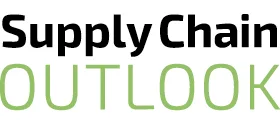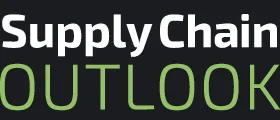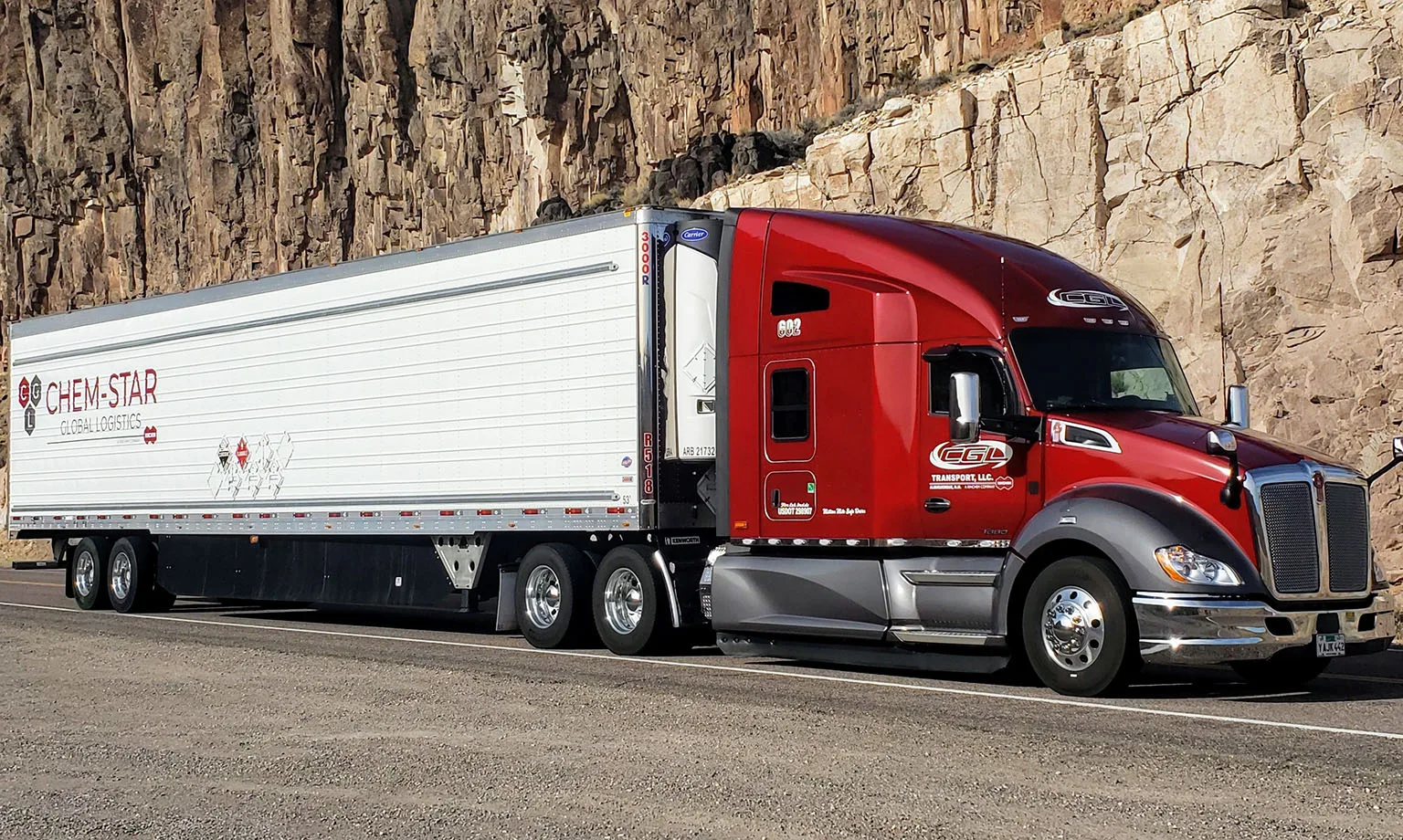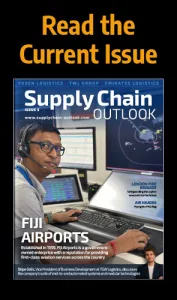Chemicals are essential to modern life and used in many industries, including agriculture, healthcare, manufacturing, and more. Chris Sower, Senior Vice President and COO, tells us how Rinchem ensures safe, compliant, and efficient chemical supply chains.
STREAMLINING THE CHEMICAL SUPPLY CHAIN
Managing the chemical supply chain, which involves transportation, storage, and distribution, is a complex and challenging process.
Rinchem, the leader in chemical supply chain management solutions, has tackled these complexities for almost five decades.
“What’s unique about Rinchem is we’re really the only third-party logistics (3PL) and fourth-party logistics (4PL) provider that focuses solely on the chemical supply chain,” acclaims Senior Vice President and COO, Chris Sower.
Indeed, whereas many other 3PLs may include the chemical supply chain as a subsect of their overall operations, Rinchem’s entire organization consists of experts in navigating the complexities and challenges of chemical supply chain management, with deep expertise in governmental and regulatory compliance as well as safety protocols.
“We’re involved in complex chemical supply chains, so we’re not just talking about imports and exports of commoditized chemistries,” he adds.
Sower himself quickly recognized the complexity of chemical supply chain management and developed a passion for the space, which resulted in him spending almost the entirety of his career in the industry.
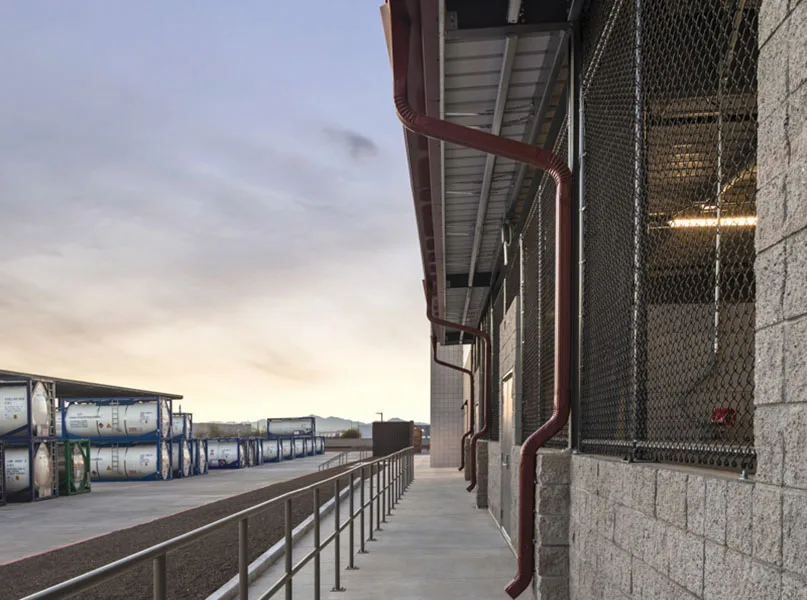
TEMPERATURE-CONTROLLED SOLUTIONS
Because many chemical products often require temperature-controlled solutions to remain within a specified temperature range, maintaining the integrity of the supply chain is critical.
Specialty chemicals, for example, can degrade or react unpredictably if exposed to temperature fluctuations, leading to costly and potentially hazardous consequences, while compromised pharmaceuticals can have serious public health consequences.
Rinchem brings the utmost performance and value to each of its clients’ supply chains through a diverse network of temperature-controlled, hazmat-compliant warehouses, trucks, and trailers.
“In many instances we manage temperature-controlled products with strict customer requirements to maintain their temperature range within just a few degrees throughout the entire supply chain, so you can imagine some of the logistical challenges we regularly face,”
outlines Sower.
“We support a variety of industries, such as semiconductors, life sciences, and pharmaceuticals, so there’s a litany of customer bases we supply, and a lot of their needs can be incredibly complex and specific. That creates challenges for those that are not acutely specialized in meeting those requirements.”
The company has been investing heavily in new warehouse locations that include temperature-controlled areas such as hot and cold rooms.
In February 2024, Rinchem opened a custom-built 123,000 square foot chemical warehouse in Surprise, Arizona to strategically support the booming semiconductor industry in the Phoenix metropolitan area.
This state-of-the-art facility features several key elements to ensure the safe and efficient storage of dangerous goods, including an expansive International Organization for Standardization (ISO) container yard that offers ample room for secure containerized storage.
It also has a dedicated gas pad with 48 storage bays to further enhance the safety and segregation of high-purity chemicals and gases, and dedicated temperature-controlled storage catered to various hazard classes and chemistries.

“What’s unique about Rinchem is we’re really the only 3PL and 4PL provider that focuses solely on the chemical supply chain”
Chris Sower, Senior Vice President and COO, Rinchem
TECHNOLOGY INTEGRATION
Mitigating against the risks of temperature-controlled solutions and ensuring chemicals stay within a specified temperature range can be achieved through technology.
Rinchem utilizes sophisticated technology that allows it to monitor temperatures in real time and adjust them remotely if needed.
Additionally, all temperatures are recorded so clients know their products are being safely transported.
“We need great technology to help us manage which chemistries can be shipped together and which ones have to be segregated from a safety, compliance, or temperature requirement standpoint,” Sower informs us.
“There is a great deal of technology integration between ourselves and our customers to ensure that the required level of service and compliance is met.”
For example, the company can host and/or interface with differing customer enterprise resource planning (ERP) or inventory management systems to increase visibility and seamlessly transition data across the supply chain.
Rinchem’s warehouse and transportation management system, Chem-Star®, likewise enables inventory visibility across its network of warehouses.
The system also utilizes GPS tracking to ensure visibility of customer loads and shipments across the Rinchem fleet.
“Chem-Star® is our portal and a gateway for customers to see what’s happening with their materials,” states Sower.
“Due to the specialized nature of the chemical supply chains that we manage, customers want to understand where their materials are, when they will arrive, and what their inventory position looks like. All of that is available to them through the Chem-Star® platform.”
Through its material requirements planning (MRP) system, the company additionally provides consultative services to help customers understand when they should order and how much inventory is in transit or at the warehouse.
“We can provide a lot of different insights into their overall supply chain management, not just tracking and tracing materials across the networks we serve.”
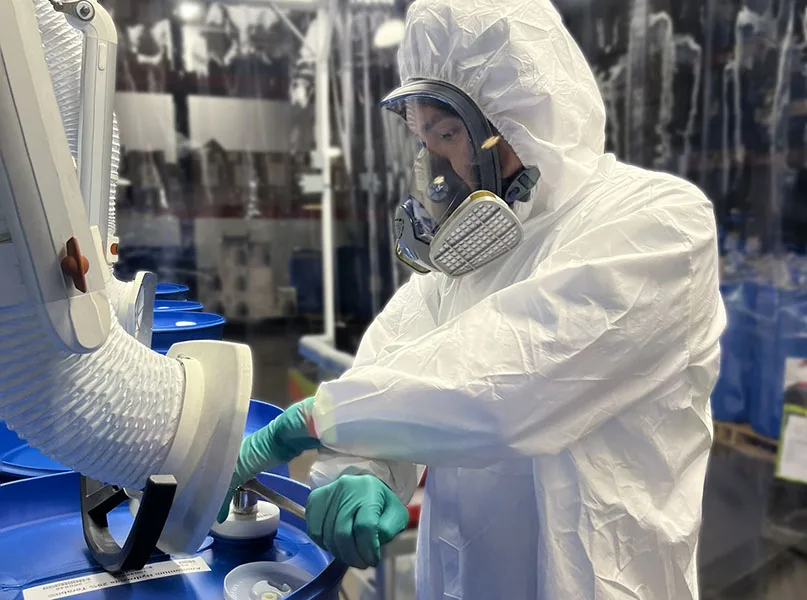
SAFETY PERFORMANCE
Rinchem is also an industry leader in the technology it deploys to increase its safety performance.
For instance, dash cams are used to strengthen the safety of the company’s transportation operations by better protecting its drivers and further establishing safe driving practices.
The dash cams enable real-time incident detection, preventative coaching, worker safety scores, and more. These features can help Rinchem to enhance safety practices that prevent crashes in addition to exonerating drivers and lowering insurance premiums.
Thus, the adoption of this technology helps the company maintain the integrity of the complex chemical supply chain that it manages.
Rinchem has also integrated artificial intelligence (AI) technology in all of its warehouses, leading to significant safety gains.
Installed on forklifts in Rinchem’s warehouses, the system uses machine learning (ML) and AI sensors to detect, record, and prevent risky behaviors and accidents.
It additionally factors in safety, productivity, and the skill levels of the technicians operating the forklifts to provide actionable coaching opportunities.
“We’re utilizing technology to minimize the number of at-risk behaviors that take place and manage them before an incident happens, rather than after,” notes Sower.
From a safety and compliance standpoint, because Rinchem handles volatile chemistries with such a high degree of specificity, everyone at the company is aligned with the same safety protocols.
As a result of this, the company has an impressive total recordable incident rate (TRIR).
“The 3PL industry has a TRIR of close to 6, whereas ours is less than 1 over the last 12 months,” Sower prides.
“That tells you all about the safety and compliance culture we’ve ingrained into the company.”
Safety and compliance start and end with Rinchem’s employees, who take them to the highest level.
Staff members also maintain ‘showcase standards’ by ensuring the warehouses are safe, clean, organized, and presentable.
“Each warehouse technician is assigned particular aisles to make sure they’re clean, compliant, and that things are put away in the right place,” elaborates Sower.
“There’s all sorts of personal ownership that everyone takes, and I think that’s the key to us being safe. It’s not just the technology and operating procedures that we have; it’s every person buying into and owning the piece that they’re responsible for.”
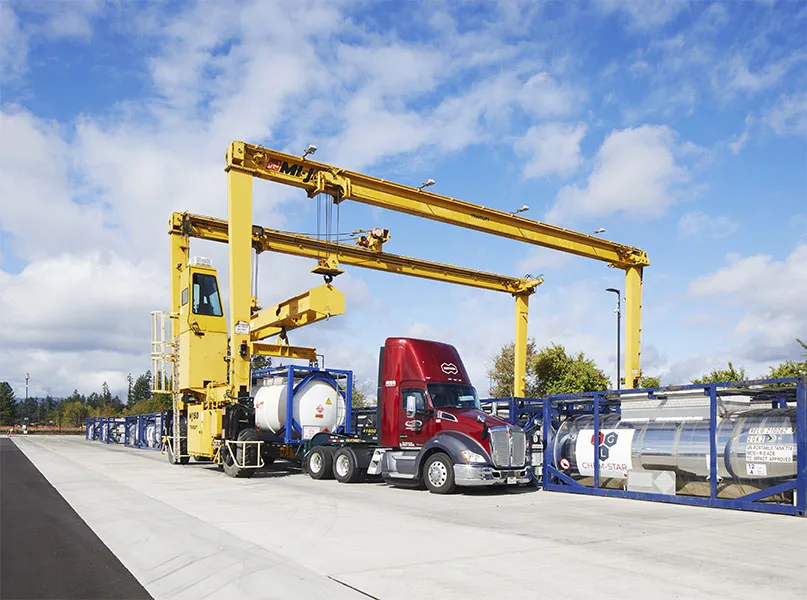
POSITIONED FOR GROWTH
Currently, Rinchem is positioning itself for the growth that is expected following November’s US presidential election.
“Regardless of the party that wins, it’s typically a good economic growth period, so we have to be ready for that,” Sower emphasizes.
Therefore, the company’s key aim is to make sure it is providing efficient chemical supply chain management to ensure its customer base is well-placed for the projected economic recovery and increased return of volumes in 2025 following the election.
“It’s a delicate balance to ensure you’re not making decisions that are going to negatively impact you in a growth period,” he continues.
“The efficiencies that we and our supplier and customer base have gained are going to make us much more resilient going forward because we have eliminated some cumbersome elements of the supply chain.”
Rinchem is better prepared and more resilient than most entering into this anticipated recovery period having continued to maintain its core knowledge base, improved its technology, and refined its processes.
“As we enter a recovery period, we’re going to be able to do more and ramp up the need for additional personnel and resources as needed,” concludes Sower.
RINCHEM PARTNER

